Image courtesy of artist Leona Bia.
Project Antelope, a new online marketplace for Indigenous arts, has launched for the new year. In 2024, Native artists are making their mark, and Project Antelope is leading the way.
Created as a centralized, year-round alternative to regional Native art shows, Project Antelope.com promotes artists from North America as well as around the world, selling a curated collection of traditional and contemporary visual art, jewelry, music, fashion, and home goods. Both casual shoppers and high-end collectors can find treasures on the site, but what sets Project Antelope apart from many other marketplaces is that the artists define for themselves what Native art is, setting their own standards for genre, medium, and style.
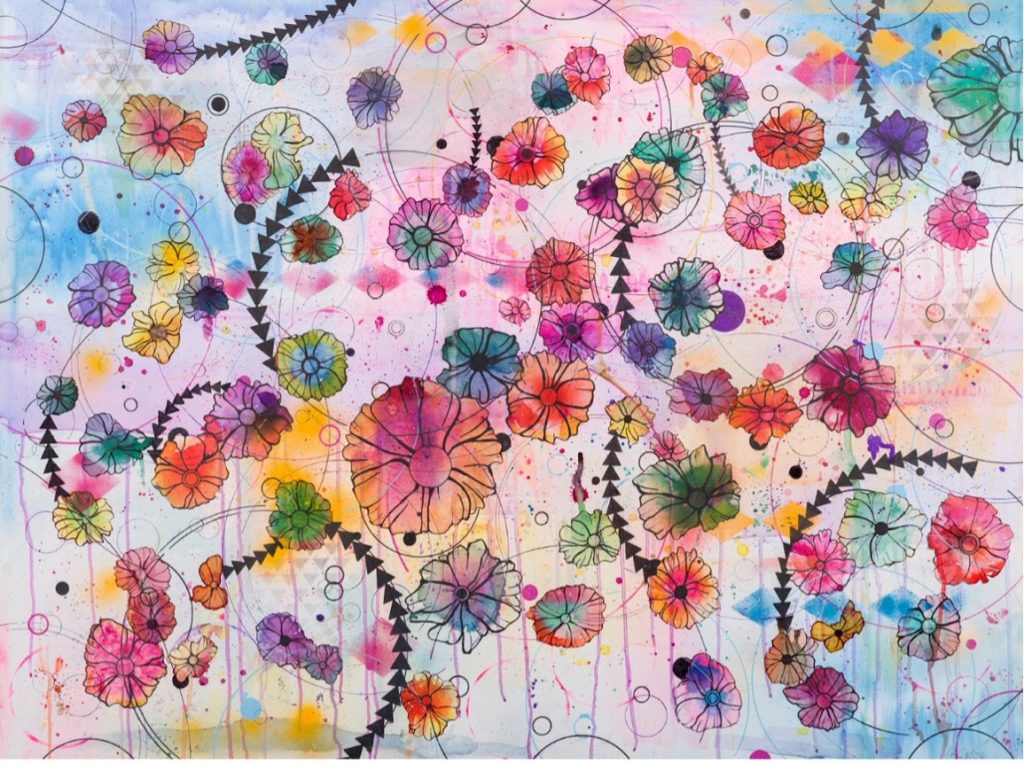
Artwork courtesy of artist Kristin Gentry
“We love Indigenous art, and we all have different tastes, so the curation on Antelope isn’t necessarily what one might expect. We focus on the quality of materials and craftsmanship, whether for beaded earrings or a painting, or an electric guitar,” says cofounder Tailinh Agoyo.
After a soft launch during the summer, 50 new artists are in the process of getting their work on the site. Artists already making sales include Glenn Hill Jr., a Mohawk luthier, J. NiCole Hatfield (Comanche/Kiowa) who makes stunning beaded jewelry, Taino painter Priscilla Bell Lamberty, and jewelry maker Kristin Gentry (Choctaw Nation). There are dolls, ribbon skirts, pop-art posters, ledger art, portrait paintings, and more, including sheet music by contemporary composers like Pulitzer Prize finalist Leilehua Lanzilotti (Kanaka Maoli), who is offering her 2023 creation, “embryology of the heart,” for solo cello.
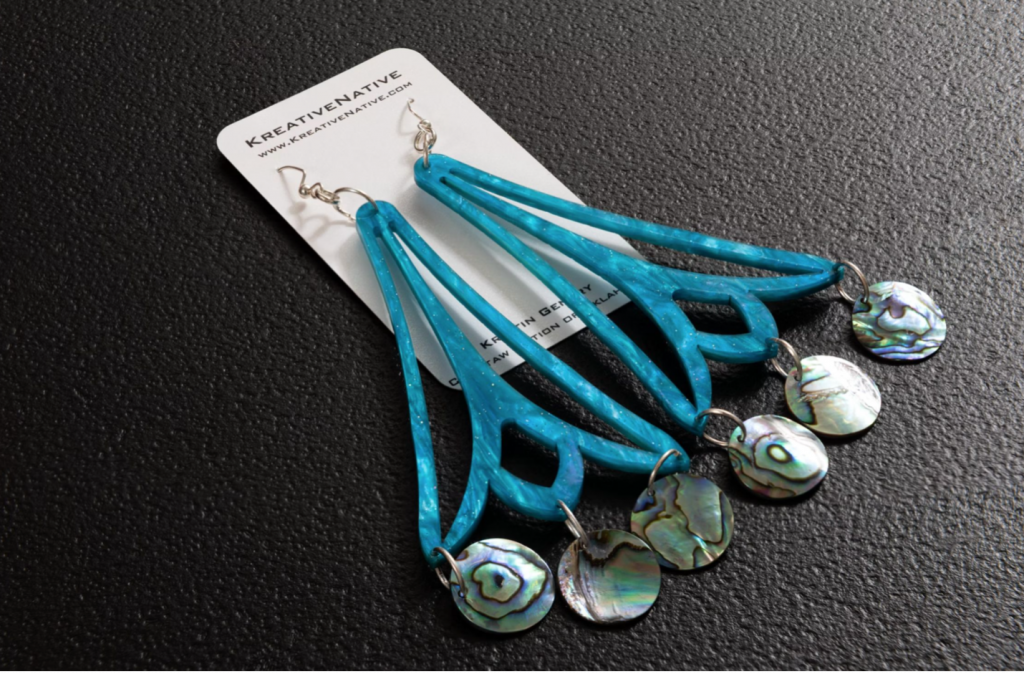
Courtesy of artist Kristin Gentry
Project Antelope is opening the doors to more artists in the highly competitive Native art world. Summer Peters has made her way in this scene but says her career has often felt at the mercy of gatekeepers and “cool people.” Project Antelope is different, explains the Saginaw Ojibwe artist known for her beadwork and fashion. “The Project Antelope founders have believed in me from the first time I met them and provided me with opportunities to grow my business while raising my children.”
Dawn Spears (Choctaw/Narragansett) considers Project Antelope a place to try new things, like producing greeting card sets and posters from her paintings and getting her hand-illustrated tote bags to people who might not run into her at art shows. “Joining Project Antelope is like a stepping stone, to see what sells, and to push myself to learn a new side of the art business. It’s also this chance to kind of up your game, to put your best foot forward within this community of artists, and maybe even make content especially with Project Antelope customers in mind.”
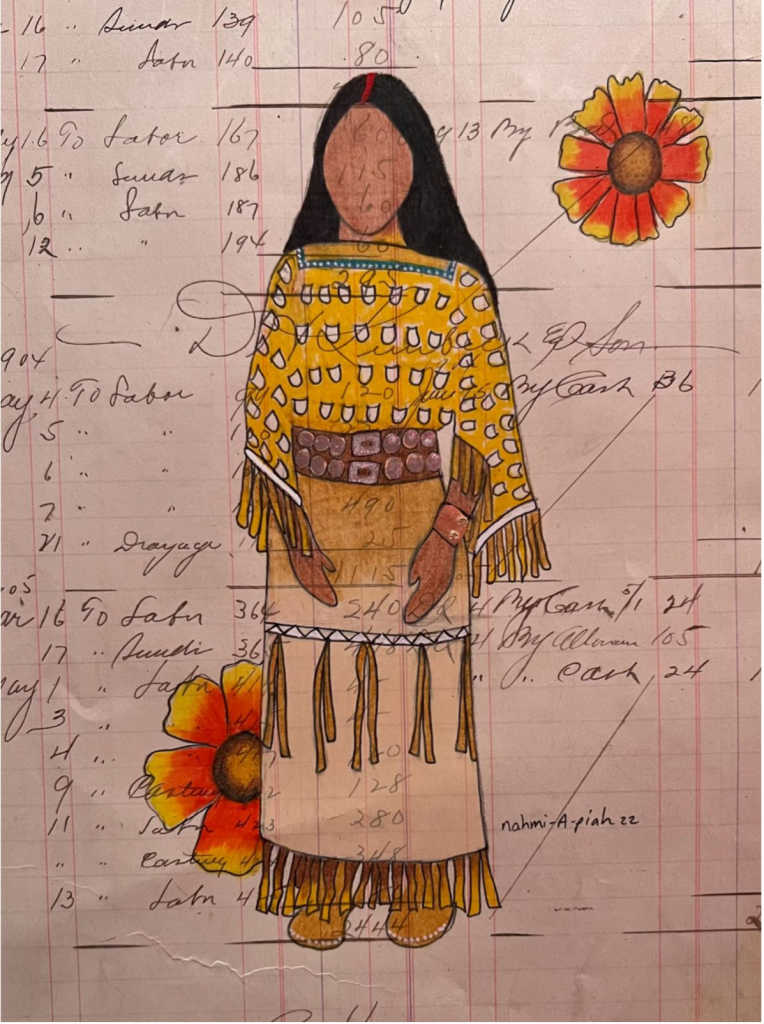
Courtesy of artist J. NiCole Hatfield
Native art shows have been vital to collectors of Indigenous art for more than a century. But collectors aren’t the only people looking for Native goods, and in the internet era, limiting the bulk of sales to annual, regional events that require both vendors and buyers to show up in person is an outdated model. While Agoyo understands that Project Antelope isn’t a wholly new idea—many Native artists have put their work online—she and her business partners dreamed of a user-friendly, community-driven platform that can serve thousands of artists at once.
“It’s time for a radical shift in the Indigenous art world,” Agoyo says. “Native art is a billion-dollar business, but for too long, the value of our work has been determined by non-Natives, our traditional artforms routinely appropriated and cheapened, and most of our sales depend on a few large, annual markets. We’re shattering these outmoded constructs with a sophisticated online platform where customers can shop year-round—and trust that the art comes from the source.”
Agoyo is leveraging connections with and opening doors for people she’s met over a lifetime in the Native art world. She grew up in an artist family, spending many summers at her father’s artist booth at SWAIA Indian Market, where she later led the marketing department. She’s the founder and director of We Are the Seeds Philadelphia, a non-profit organization that supports East Coast Indigenous arts and culture. Project Antelope grew out of that work, coming to fruition a few years ago when she and Colleen Farwell, her former roommate from Dartmouth College, realized they were missing an opportunity to promote Native makers.
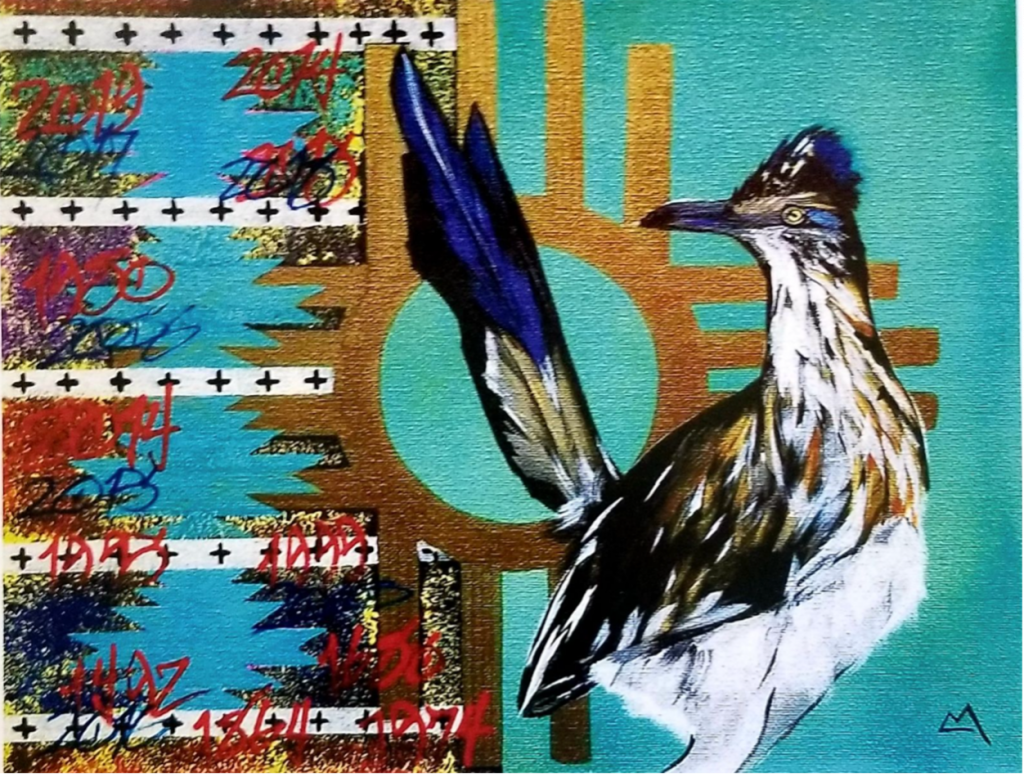
Courtesy of artist Roberta Begaye
“It came largely out of frustration,” Farwell said about the idea to create Project Antelope. “We loved supporting Indigenous artists, but every time we found something online, it was already sold. Indigenous makers are selling fabulous art through their Instagram profiles, but what is missing is a centralized venue and real-time availability. To see everything at once, you have to get to a show, but not everyone can travel at the right time of year, and there are so many buyers who cannot alter their schedules to attend a show.”
Farwell works with Indigenous manufacturers and retailers as the founder and CEO of Black Canyon Distribution. She knew there had to be a better way and was willing to find the capital. “As I was talking to Tailinh about the possibility of creating an Indigenous website where there’s real inventory, she said another friend had approached her with the same idea, and we should just do it.” Beyond filling a much-needed niche in the Native arts world, Farwell was motivated to invest in Project Antelope because she wanted to support people in the way she was supported early in her career.
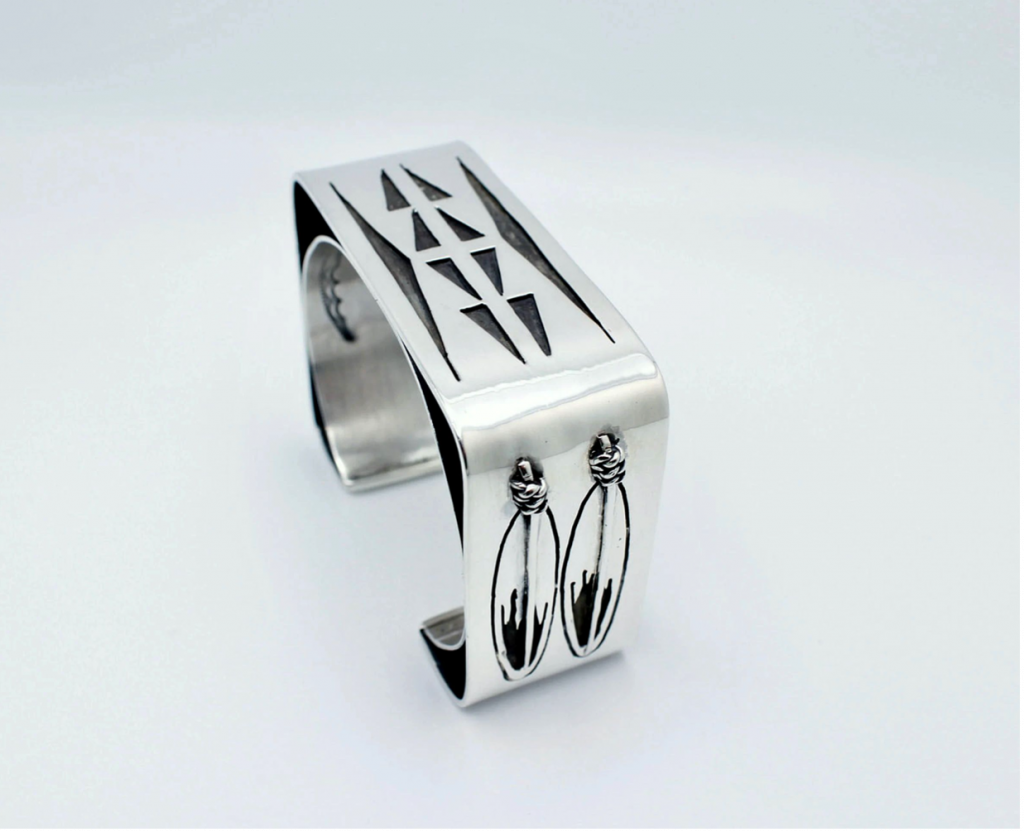
Courtesy of artist Tchin
“So many artists have day jobs and families, and they don’t have time to maintain a website. Or there are Elders who live in rural areas who don’t know how to navigate the technology. We can make it easy for them to sell their work,” Farwell says.
With Project Antelope poised for rapid growth, the team has added staff: Taikwan Wright as head of product, and Xiao Hui Star Chin supporting strategic operations. Wright and Chin bring decades of experience in back-end development, project management, and operations experience, working with multidisciplinary teams of creatives, strategists, and technologists.
Soon, Agoyo says, Project Antelope artists will be able to connect and collaborate with each other, and take advantage of other expanded opportunities. “It’s not just getting on the site and selling your work. Each artist receives individual, customized attention. This is about partnerships, about creating generational wealth, about Indigenous artists from around the world tapping into the global marketplace.”
___________________________
Author bio:
Jennifer Levin is an arts and culture writer living in Santa Fe, New Mexico. She wrote for Pasatiempo Magazine at the Santa Fe New New Mexican for many years, and now writes for several publications and non-profit organizations. She is working on a memoir, All the Girls in Their Cages, about generational trauma and chronic illness.
To learn more about Project Antelope, please visit https://projectantelope.com/

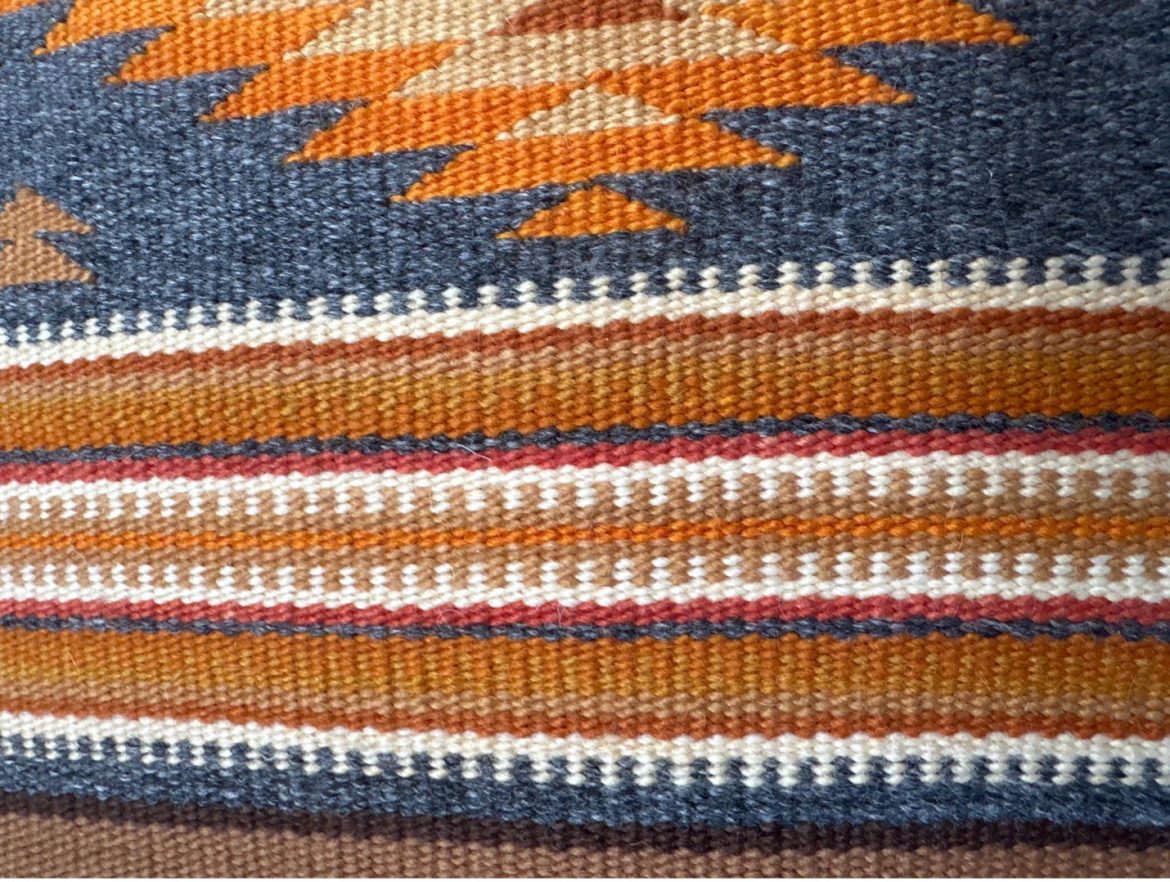




NO COMMENT